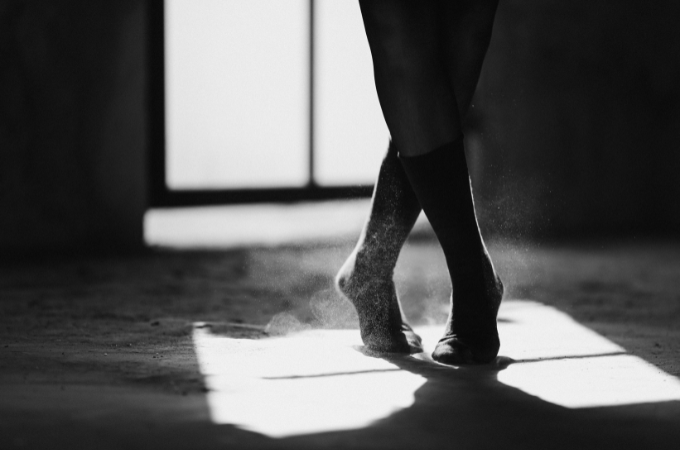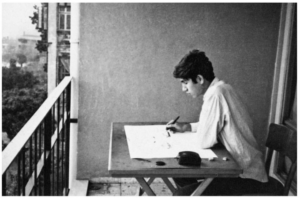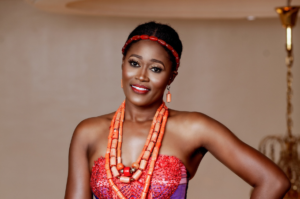
Choreography. My first experience with contemporary “dance” was with a genre that is considered feminine.
How do you explain to a dozen youngins or more, with a preponderance of a certain gender over the other? The only spotted difference is a pair of dark pants while the hands are unanimous in synchronized dexterous movements, with bodies sidling, voguing. Damn! Boy was good. Yet, listing such activity as an interest in a heteronormative society is an abomination and something to shed off at prepubescence.
Another discussion as a post-teen was the boisterous response for confirmatory “are you gay?” That was spewed rudely when I had applauded a ballet friend in France during a rendezvous in my first year while at Uni. Such discussions end abruptly because there is no correct answer to give, one whose only ascription of contemporary dance is to mean queerness. So, I shunned everything about dance, at least of that genre, nor did I join a coterie of people who burn with a similar contemporary dance zeal.
Perhaps for critics, any gender-based dance is an issue rooted in what is termed cultural misappropriation or heteronormativity. It’s a stereotypical abhorrence and a sweet defence when society sees an individual absorb a part of a culture that is considered alien. Yet, they forget to see the resemblance in the host culture or tradition. So, we engender dance, criticize sashays, and loathe hypnotizing pirouettes, all of which are similar movements found in all dance genres but that manifest differently in an individual and how yielding their body lusts after the commanding rhythm. Dance steps are both systematic and magical moves, giving the dancer a celestial feeling. I bet this is why all dancers smile, but I still do not know why dance is gendered when it is both sexless and colourless travelling unhindered across continent boundaries.
The varsity became my first spectacle when I fully saw all types of dancers and their genres. In the amphitheatre, open fields, faculty orchard, basement, and most times at the school auditorium, where bodies whirled to different rhythms, a typical criticism screaming cultural misappropriation above my head, and fisticuffs with the stereotype I have now been conditioned to. I saw something different that looked rebellious. Females wore baggy jeans while some males were in skin-tight pants, tiptoe, and pirouetting. The voices screaming atop my head were judging yet I remained in awe of the brilliance. I believe the voices weren’t mine, but voices from patriarchal indoctrination, which had inevitably possessed a body in my prescience.
I hate to exonerate myself, for being an accomplice of voices who had grown to look like mine and does not mind spreading a contagion. But days grew into months and a coterie of voices rose in revolt after four years in an institution that gave me a stage after 14 years of shunning choreography. You certainly won’t learn about life while refusing to see only through your lens or unlearn and relearn. This is the beauty of participating in life’s happenings voluntary or involuntary, just participate.
Lagos, Nigeria, was another exposure to never to engender a gift. At a Christian music institution, I met one of the loudest sopranos I have ever heard, after months of my passive attendance with the Anglican Church. This voice had lured me, and never could I have imagined that such a piercing soprano was from a teenage boy. The lesson learnt on my toes was “our voices do not have genitalia”. He had scored a scale to warm up his vocal cords, causing the room to stand still. His eyes puffed up in some imposing energy and let a grin while ending the note. I was star-struck by the great possession god the divine has outlandishly blessed a soul without giving a gender thought. You should have heard him. The boy is good.
Another thing that mesmerized me was the drummer girl whose dexterity with the drumsticks was unbelievable. So much talent deposited in the 12-year-old, with the Yoruba traditional hide drum “Gangan”. It would have been cool if she were twirling her waist to the beat of any lad’s or grown-up’s beats. But the sticks have decided to bless whom they’ve found worthy. Her story is another unveiling that the hands cannot be gendered just like every other body part. Aralola Olamuyiwa, popularly known as Ara, a Nigerian drummer certainly knows better now.
Another minuscule yet big concern is the twirling of the waist because it goes against some heteronormative beliefs on what dance is. The “Urhobo dance” for the males is never devoid of male waist twirlers. Some men do it better than others. It’s a possession when all the energy goes to the rear and makes the most locomotive moves to songs and drumbeats that pierce one’s soul without any intelligibility of the lyrics for a foreigner. A spectator can only stare in awe or rather try to mimic the sophistry. I really cannot forget Umolo’s twirling whenever he is possessed by the Isoko-Urhobo Jamz.
Now, Umolo is a calm and quiet man who would rather clap and smile even in a happy-clappy religious house. Yet he is never the same at the tune of “abo abo” and any of their popular beats. While he does that, the English wears obey a man who has utilized two cultural complexities. The twirling of the waists or any other bodily movement which is contained in the African culture(s) is not a misappropriation when deployed or visible in an adaption of a borrowed “dance”. This is more reason why I am thrilled when 11-year-old Anthony Mmesoma Madu, looked stereotypes in the eye and shamed them regarding ballet.
The nostalgic feeling of doing and freeing to do what one loves best, having some supportive voice – a voice boasting one’s heroism – is an immeasurable gift. To lift, and dance despite the disparaging voices of misappropriation or gendering.
Dance is simply an expression of one’s inward creativity. It has no manual, though you can learn, the way one controls their body is dependent on the power of the mind to break the stereotype. And when one hits a magical dance note, the dancer smiles, not for the spectators but a feeling of accomplishment and satisfaction. However, if I could ram into my younger self in search of getting a pair of white socks, or a pair of hand gloves, or him coming back lachrymose because of failed attempts to get any. If I could be in his earliest conversations, and talk about participating in any dance he loves, even if it involves wearing a tutu, our conversation would dwell on standing tall above every condescending word. It will be about developing a shield against derogatory words that are good at disparaging because if words of affirmation are not said or read, there will always be a decision to dance or not.










COMMENTS -
Reader Interactions